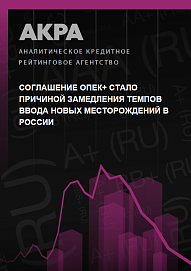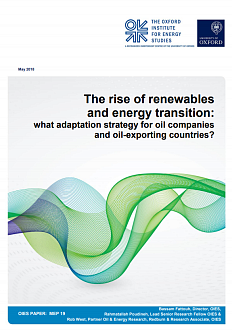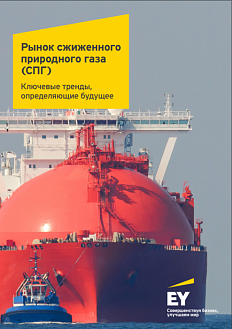According to ACRA, launch of new pipeline capacity will trigger a new wave of production growth in the US, which will put pressure on oil prices in 2H2019 and 2020. ACRA forecasts an average annual price of Urals oil grade to fall, reaching USD 58.7/bbl in 2020.
Modernization of Russian refineries will ensure growth in exports of oil products. Exports of motor fuel in Russia will rise by 14.4 million tons in 20172023 with refining growing by 15.5 million tons over the same period. The increase in oil production in Russia coupled with a relatively slow pace of refining growth will contribute to the rise in crude oil exports up to 266 million tons in 2022 compared to 256 million tons in 2018.
Vertically integrated oil companies (VIOCs) will continue to increase investment up to 2020.
.png)
The spike in oil prices in ruble terms in 2018 led to a significant growth in EBITDA of Russian oil and gas companies, which contributed to the decline in a CAPEX share in VIOC EBITDA to a rather comfortable level of 54.6%. The debt to VIOC EBITDA ratio fell to 1.3х (basically, the 2013 level) in 2018 compared to 2.3х a year earlier.
The debt structure of oil and gas companies changed. The share of the ruble-denominated debt surged from 13% to 41%, and that of bonds from 40% to 66%.





